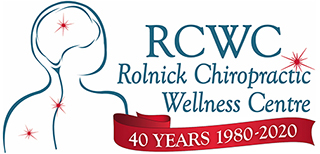Enhance Your Health
Health Tip of the Week: Brussel Sprouts
Tis the season. The season of Brussel sprouts! Brussels sprouts have been voted as the most-hated vegetable in both the US and Britain, perhaps because they can be notoriously smelly. But the offensive odor only occurs when these nutritional powerhouses are overcooked – something you definitely want to avoid to preserve both their flavor and nutrients.
Further, that odor comes from a type of glucosinolate, a sulfur-containing compound that is responsible for some pretty impressive health benefits, including fighting cancer. Brussels sprouts are an ideal food if you’re looking for something that’s hearty yet low in calories.
One cup of cooked Brussels sprouts contains just 56 calories but is packed with more than 240 percent of the recommended daily amount (RDA) for vitamin K1, and nearly 130 percent of the RDA for vitamin C. Plus, Brussels sprouts are a good source of fiber, manganese, potassium, choline, and B vitamins. They even contain protein.
But not only do Brussels sprouts contain well-known antioxidants like vitamin C. They also contain others that are much less known and way more difficult to pronounce!! Equally as important, antioxidants like kaempferol, isorhamnetin, caffeic, and ferulic acids, and D3T.
This means that when you eat Brussels sprouts, you’re helping your body to ward off chronic oxidative stress, which is a risk factor for many types of cancer and other chronic diseases. To sum up the benefits of eating Brussels sprouts, Brussels sprouts help activate cancer-fighting enzyme systems in your body. Brussels sprouts help support both Phase 1 and Phase 2 detoxification.
Eating more Brussels sprouts may support your heart health and lower your risk of cancer and chronic inflammation. Brussels sprouts still attached to the stalk may be fresher and often cost less.
Thought for the Week
"Disc degeneration actually does not cause back pain. That's been well documented. The success rate of the spinal fusion for back pain was about 24 percent, but we still kept doing it. Then, in 1994, research was presented showing that the return-to-work rate one year after a spinal fusion for back pain was 15 percent, I just stopped performing fusion surgeries. Every paper since then has showed pretty much the same dismal results; there's maybe a 20 to 25 percent success rate of spinal fusion for back pain. And the downside of a failed spine surgery is terrible. It's really bad. These people are condemned to live their entire lifetime, 30 to 40 more years, in chronic pain." ~ Dr. Donald Hanscom, Orthopedic Surgeon (My plug to try chiropractic first ~ Dr. J)

